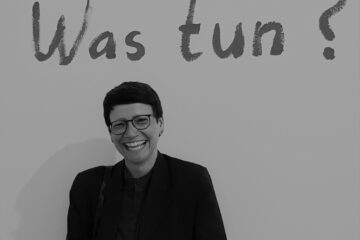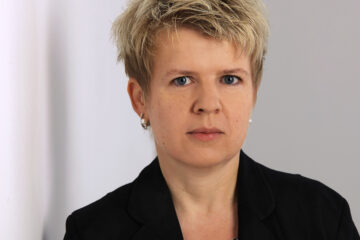How can we rethink the paradoxical as a site for feminist and trans intervention? In this lecture, I will share my new research where I look at recent feminist and trans literary, artistic, and cultural production through the notion of paradox (Barenboim & Said 2002; Wunker 2016; Gossett, Stanley & Burton 2017). I will unveil how these writers’ and artists’ worldings (Haraway, 2016) advocate for fierce (political and ethical) modes of kindness and love, while simultaneously proposing what I call a critical necropoethics (Mbembe 2003; Haritaworn et al., 2014; Kähkönen & Ladin 2017). Ultimately, I seek to think critically and ethically about these paradoxical representations, while addressing broader discussions, such as the current fractures between feminist and trans groups, and the central paradox that characterizes these current times where trans visibility intimately co-exists with growing anti-trans violence.
Dr. Libe García Zarranz is an Associate Professor of Literature in English in the Department of Teacher Education at the Norwegian University of Science & Technology (Norway). Prior to joining NTNU, she taught critical theory and gender studies at Magdalene College, University of Cambridge (UK). Libe has published on Canadian literary studies, affect theory, and feminist, queer and trans studies.
Aufzeichnung einer online Gender Lecture am 20. Oktober 2020.
Moderation: Doris Eibl, Institut für Romanistik, Universität Innsbruck
Kommentar: Ulla Ratheiser, Institut für Anglistik, Universität Innsbruck




















